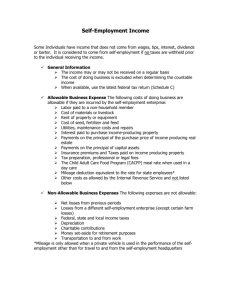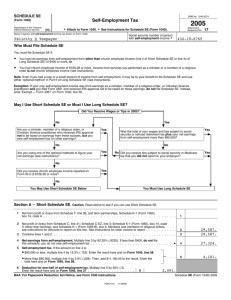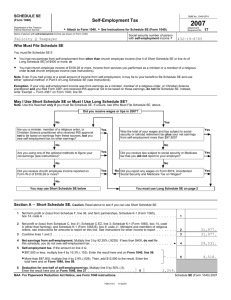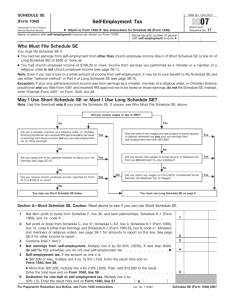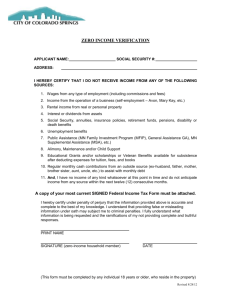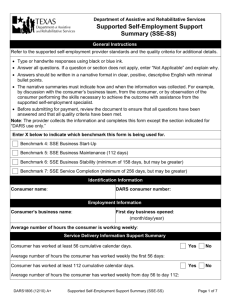Self-employment rates vary widely by ethnic group in the UK: Asian
advertisement
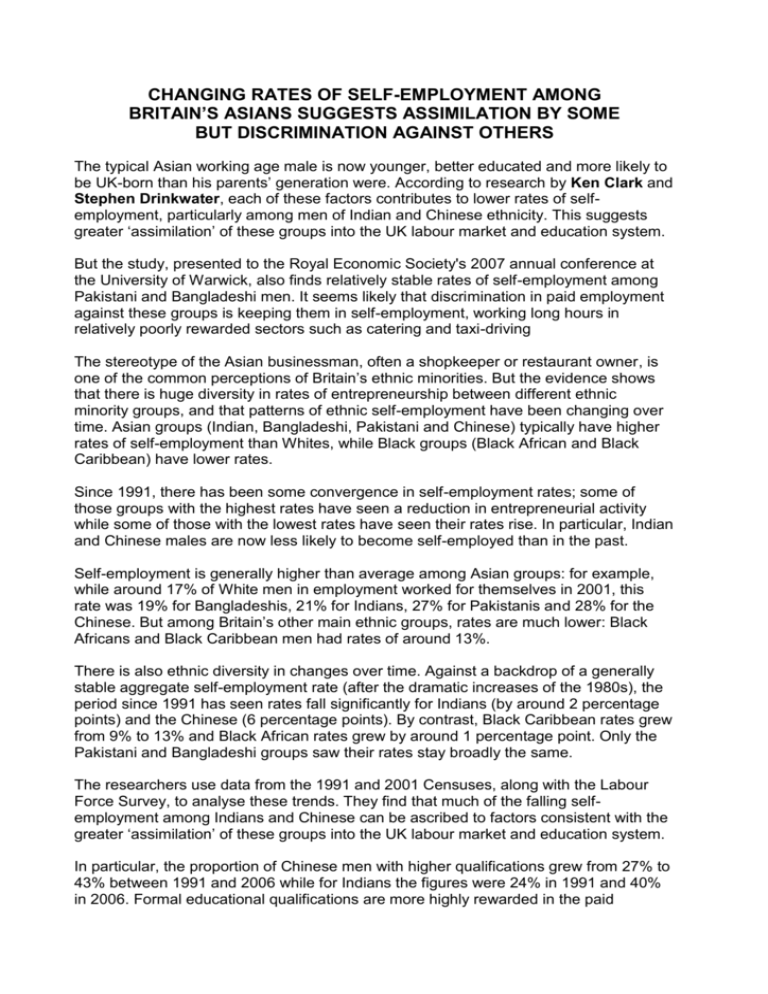
CHANGING RATES OF SELF-EMPLOYMENT AMONG BRITAIN’S ASIANS SUGGESTS ASSIMILATION BY SOME BUT DISCRIMINATION AGAINST OTHERS The typical Asian working age male is now younger, better educated and more likely to be UK-born than his parents’ generation were. According to research by Ken Clark and Stephen Drinkwater, each of these factors contributes to lower rates of selfemployment, particularly among men of Indian and Chinese ethnicity. This suggests greater ‘assimilation’ of these groups into the UK labour market and education system. But the study, presented to the Royal Economic Society's 2007 annual conference at the University of Warwick, also finds relatively stable rates of self-employment among Pakistani and Bangladeshi men. It seems likely that discrimination in paid employment against these groups is keeping them in self-employment, working long hours in relatively poorly rewarded sectors such as catering and taxi-driving The stereotype of the Asian businessman, often a shopkeeper or restaurant owner, is one of the common perceptions of Britain’s ethnic minorities. But the evidence shows that there is huge diversity in rates of entrepreneurship between different ethnic minority groups, and that patterns of ethnic self-employment have been changing over time. Asian groups (Indian, Bangladeshi, Pakistani and Chinese) typically have higher rates of self-employment than Whites, while Black groups (Black African and Black Caribbean) have lower rates. Since 1991, there has been some convergence in self-employment rates; some of those groups with the highest rates have seen a reduction in entrepreneurial activity while some of those with the lowest rates have seen their rates rise. In particular, Indian and Chinese males are now less likely to become self-employed than in the past. Self-employment is generally higher than average among Asian groups: for example, while around 17% of White men in employment worked for themselves in 2001, this rate was 19% for Bangladeshis, 21% for Indians, 27% for Pakistanis and 28% for the Chinese. But among Britain’s other main ethnic groups, rates are much lower: Black Africans and Black Caribbean men had rates of around 13%. There is also ethnic diversity in changes over time. Against a backdrop of a generally stable aggregate self-employment rate (after the dramatic increases of the 1980s), the period since 1991 has seen rates fall significantly for Indians (by around 2 percentage points) and the Chinese (6 percentage points). By contrast, Black Caribbean rates grew from 9% to 13% and Black African rates grew by around 1 percentage point. Only the Pakistani and Bangladeshi groups saw their rates stay broadly the same. The researchers use data from the 1991 and 2001 Censuses, along with the Labour Force Survey, to analyse these trends. They find that much of the falling selfemployment among Indians and Chinese can be ascribed to factors consistent with the greater ‘assimilation’ of these groups into the UK labour market and education system. In particular, the proportion of Chinese men with higher qualifications grew from 27% to 43% between 1991 and 2006 while for Indians the figures were 24% in 1991 and 40% in 2006. Formal educational qualifications are more highly rewarded in the paid employment sector so this growth in human capital has contributed to the decline in self-employment for these groups. Similarly, the fact that the average working age Asian is now younger and more likely to be born in Britain, compared with 1991 also tends to reduce the propensity of entrepreneurship as older workers and first-generation immigrants have an increased likelihood of being in business for themselves. One puzzle that emerges from the research is the fact that self-employment rates of Pakistani and Bangladeshi males have remained broadly stable in spite of the fact that this group shares many of the demographic trends of the other Asian groups. It is estimated that the Pakistani/Bangladeshi self-employment rate should have fallen by around 3 percentage points on the basis of demographic changes alone. The fact that it did not suggests other factors are at work. It seems likely that discrimination in paid employment against Pakistani and Bangladeshi men is responsible for pushing them into self-employment, working long hours in relatively poorly rewarded sectors such as catering and taxi-driving. Given this, government policy should pay attention to the quality, as well as the quantity, of self-employment among all ethnic groups. ENDS Notes for editors: ‘Changing Patterns of Ethnic Minority Self-Employment in Britain: Evidence from Census Microdata’ by Ken Clark and Stephen Drinkwater was presented at the Royal Economic Society’s 2007 annual conference at the University of Warwick, 11-13 April. Stephen Drinkwater is at the University of Surrey; Ken Clark is at the University of Manchester. Their research was funded by the Joseph Rowntree Foundation. For further information: contact Ken Clark on 0161 275 3679 (email: ken.clark@manchester.ac.uk); Romesh Vaitilingam on 07768-661095 (email: romesh@compuserve.com).



